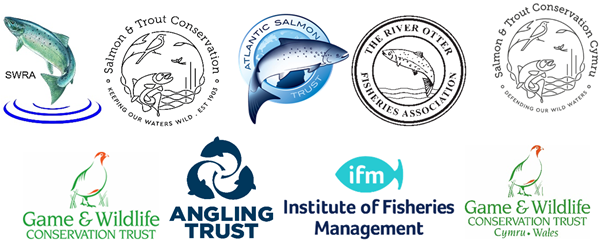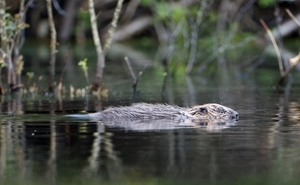
Fighting to protect our iconic and threatened migratory fish
 Freshwater migratory fish are among the most threatened animals on the planet. Globally they have declined by 76% between 1970 and 2016 a higher rate of decline than marine or terrestrial migratory species. Our salmon and sea trout are no different, with populations on most rivers in England and Wales classified as at risk by the UK governments. The pressures on the populations include barriers to migration, poor water quality, rising temperatures, habitat degradation and loss, over-abstraction and pressures at sea.
Freshwater migratory fish are among the most threatened animals on the planet. Globally they have declined by 76% between 1970 and 2016 a higher rate of decline than marine or terrestrial migratory species. Our salmon and sea trout are no different, with populations on most rivers in England and Wales classified as at risk by the UK governments. The pressures on the populations include barriers to migration, poor water quality, rising temperatures, habitat degradation and loss, over-abstraction and pressures at sea.
Beavers build dams using riparian trees and branches, and the dams can be multiple along lengths of rivers and in some cases over six feet high. These threaten to restrict the vital movement of adult salmon, sea trout and brown trout to and from their spawning grounds in small streams and tributaries, and their juveniles as they migrate downstream to sea.
Without a funded science-based management strategy, with a clear focus on mitigating impacts for salmon and trout, there is a real risk that beaver dams will cause harm to these vulnerable protected populations. Research on the licensed released beaver population in the River Otter, which is being used to inform the management strategy being developed by Defra, has focused on demonstrating the benefits of beavers. However, it did little to address the obvious threat of beaver dams to important migratory fish.
Therefore, fisheries conservations organisations – Atlantic Salmon Trust, Salmon & Trout Conservation, Game & Wildlife Conservation Trust, River Otter Fisheries Association, South West Rivers Association and the Angling Trust – have raised concerns to the UK and Welsh governments.
Our aim is to prevent harm being done to the already hard-pressed wild fish stocks. To provide an independent assessment of the issues, we commissioned a study by Professor Ian Cowx (Director of the University of Hull’s International Fisheries Institute), which has highlighted the lack of effective research and published science on the passibility of dams by fish, and in addition to other issues.
We support the re-introduction of species, providing IUCN guidelines are followed. These are designed to ensure that reintroductions do not harm existing wildlife by requiring full environmental impact assessments, and alongside stringent management processes and to ensure exit strategies are in place. In the case of the reintroduction of beavers in England and Wales, these IUCN guidelines have not been followed, particularly with respect to the lack of a robust impact assessment on endangered and designated migratory fish species.
Defra, Natural England (NE) and Natural Resources Wales (NRW) have a responsibility for managing re-introductions, but also have responsibility for ensuring the protection of designated species. Therefore, we urge Defra, NE and NRW to implement these key recommendations from the Cowx report:
- Defra and Welsh government urgently need to publish a policy to manage re-introductions, so that risks to current designated species are assessed and appropriate management strategies can be developed.
- There is currently insufficient UK-specific scientific evidence to develop a robust strategy to manage interactions between beavers, their dams and other activity, and fish. Therefore, there needs to be funded research, including telemetry studies, on the upstream and downstream passibility of a range of dam types, including cascades of dams, for a full range of species.
- Managing beavers and their dams to provide unrestricted access for endangered salmon and sea trout populations needs to be integral to any future beaver management strategy. This must be fully funded and practical to implement.
- Future enclosed beaver releases, as per IUCN guidelines should have appropriate transparent exit strategies.
- Any further open releases should be required to demonstrate that they will cause no harm to protected migratory fish populations.
- Any future management strategy should be simple to implement, funded and cost-effective.
READ THE FULL REPORT